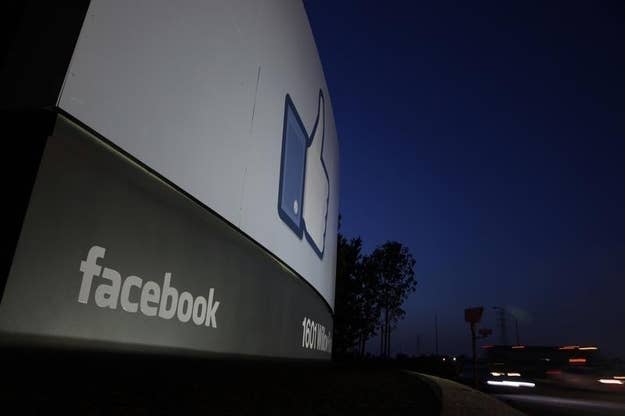
Facebook's new death policy announcement, "Remembering Our Loved Ones," starts on a promising note:
As members of Facebook's Community Operations team, we talk to people who use Facebook every day and we're committed to making their experience better. Some of the people who reach out to us are grieving the death of a friend or family member, and they usually ask for their loved one's timeline to be memorialized.
After mulling the various questions regarding how to deal with death on the social network — "questions that have no easy answers," according to the post — Facebook apparently arrived at this decision:
Up to now, when a person's account was memorialized, we restricted its visibility to friends-only. This meant that people could no longer see the account or any of its content unless they were Facebook friends with the person who passed away. Starting today, we will maintain the visibility of a person's content as-is.
This is neither where the posts reverent tone nor its introduction seemed to be headed; this is downright strange. Memorialization was never perfect, but it was cautious — and when better to be cautious than in the presence of the bereaved? The justification for the change is also odd, not least because it refers to the online legacies of the dead as "content":
This will allow people to see memorialized profiles in a manner consistent with the deceased person's expectations of privacy. We are respecting the choices a person made in life while giving their extended community of family and friends ongoing visibility to the same content they could always see.
The deceased have no "expectations of privacy." They have no expectations at all: They are dead.
There's a reason that, in the absence of previous spoken or written requests, people refer to the imagined wishes of dead loved ones as what he or she "would have wanted." To say a dead person wanted something — or wants something — is presumptuous in the extreme, unless you're close kin or a life partner.
Again: the deceased person's expectations. Facebook now assumes, it seems, that its users are constantly aware that they are creating not just profiles, but memorials — it demands symmetry from the perhaps the most unquestionably asymmetric condition known to man.
The practical problems here are best illustrated by extremes: Early, especially tragic, or newsworthy deaths subject online profiles to unusual and unsettling scrutiny. Imagine you survived some sort of public event that landed you on TV, or in the paper. You might be inclined to tighten your online privacy settings to avoid unwanted attention. Or simply to hide, at least from people who don't know you well, those pictures from your raucous birthday party the week before.
Now, imagine you didn't survive: Is the last thing you posted on Facebook fit to be your public legacy? How about the first thing? Did you think, as you uploaded that last photo, that you were helping design your own public funeral program? (This is a question Twitter users should consider as well.)
If history is any guide, data posted to Facebook should be expected to become more visible over time. My profile was not constructed in an era during which posts were searchable, for example. Back then, "public" posts were only public to people who bothered to click on my profile. Now, "public" posts are included in trending topics and keyword searches. In both 2009 and in 2014, the same post is technically and absolutely public. But in 2014, it's much, much easier to find.
This is Facebook's legalistic view of privacy: always within the written boundaries of our mutual agreements, but not necessarily in their spirit. And now this view extends to death.
The solution to the next issue addressed in this announcement is easier to understand. After the debut of "Look Back" videos last month, many families who had lost loved ones got into touch with Facebook asking for access (the videos, initially, could only be accessed and shared by the owner of the profile). To deal with these requests, which clearly step into "would have wanted" territory, Facebook devised a process: Fill out an official form, and verify who you are. This more conservative sensibility is inline with the way memorialized Facebook pages used to function: As places for a Facebook user's chosen friends and family to grieve. This, even, is presumptuous — Facebook "friends" are by default afforded the privileges of actual friends — albeit not so brazenly. It at least erred on the side of privacy.
In its "Look Back" arrangement Facebook has outline a useful template for new memorialization. Assume a desire for privacy unless instructed otherwise. Or maybe even ask users! Make it a part of the signup process: "When I die, I would like my Facebook profile to become __________." Have us write a will!
The site says it "will have more to share in the coming months" about its "ongoing effort to help people when they face difficult challenges like bereavement on Facebook."
But this is a curious start. It suspends its users in Facebook's "more open and connected" world, even after they've left the real one.
